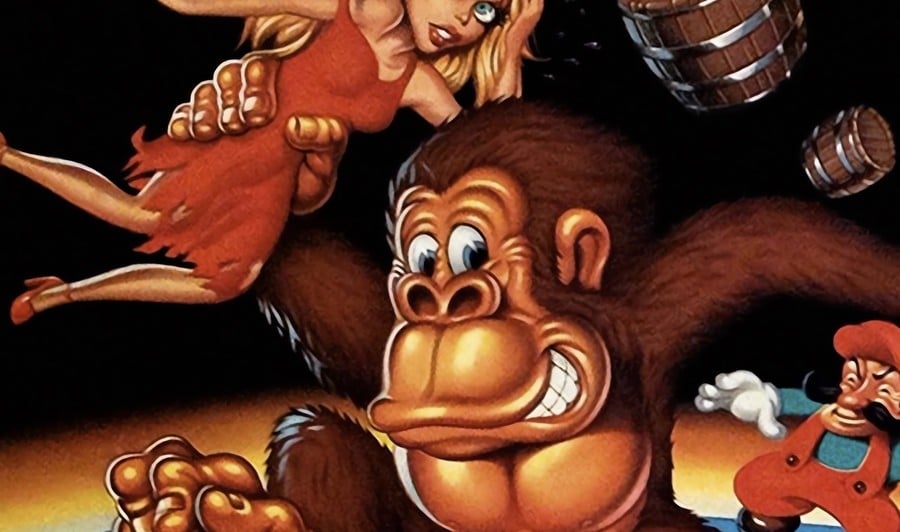
Update [Mon 11th Dec, 2023 14:00 GMT]: "Donkey Kong: A Record of Struggle" by Hirohisa Komanome has finally been translated to English, as was highlighted in September of this year.
You can check out the full thing here, but we've included some of Komanome-san's introduction below:
The Donkey Kong development began as a means of clearing out the extra printed circuit board (PCB) inventory of Radar Scope (1980/Nintendo), an arcade game which Nintendo had subcontracted Ikegami to develop.
Miyamoto's ideas were not immediately greenlit. At this initial meeting we considered various issues: could Miyamoto's ideas actually be realized on this hardware? Was it a suitable idea for a game? In order to answer these questions, we were instructed to identify any problems with his plans and to consider other game ideas as well.
A rough schedule was also decided at this point: the development was to be completed in mid-June… giving us only two and a half months! In other words, the due date was our summer vacation. The four of us had only been with the company for one year, and we had no idea how demanding this schedule would be. On the contrary, we were very excited about this job--the first we had been entrusted with since joining Ikegami. The next three months (the development went about a half month over schedule) would prove to be an incredible challenge for all four of us.
Original Story [Thu 14th Sep, 2023 10:05 BST]: Donkey Kong is one of the most important games in Nintendo's history for many reasons. It gave us both the titular character and Mario, the latter of which would become the company's mascot. Secondly, it highlighted the talents of one Shigeru Miyamoto, arguably Nintendo's most significant employee. Thirdly, it saved Nintendo's flagging video game business, setting the company on course to dominate the domestic market with its Famicom / NES console.
However, what many people don't realise is while Miyamoto designed the game, the programming work on Donkey Kong was handled by an external company called Ikegami Tsushinki, which also worked on other Nintendo arcade games (such as Radar Scope, which apparently was handled almost entirely by Ikegami Tsushinki staff). Sega's Congo Bongo and Zaxxon were also programmed by the company.
The relationship between the two firms soured to the point that, in 1983, Ikegami Tsushinki sued Nintendo for ¥580,000,000 (around $4.3 million in modern USD) after the latter had created additional Donkey Kong arcade boards without the permission of the former, who technically owned the copyright to the game's code. In 1990, a trial took place in Japan which determined that Ikegami was right – Nintendo did not own the original code for Donkey Kong – and the two companies settled out of court in the same year for an undisclosed sum. As you can imagine, this isn't a part of its history that Nintendo is keen to shout about.
Because of that, this particular narrative isn't as widely known as you might imagine, but it's going to get another lease of life thanks to the efforts of Gaming historian Critical Kate and gaming preservation organizations Gaming Alexandria and Hit Save! They've all teamed up to translate an 11-page document written by one of the Ikegami Tsushinki staffers who worked on the game. The technical document – penned in 1997 – is based on information he'd held onto since 1981, and contains details never mentioned in any previous interview relating to Donkey Kong.
Rather than use machine translation, the plan is to pay for a high-quality translation via the excellent Shmuplations, where the piece will also be published. A goal of $750 was selected, and this was quickly surpassed in less than 3 hours.
Soon, Donkey Kong will give up more of its secrets – and we personally cannot wait.





